The Alchemist
I want to start out by saying that this book has forever changed me, my life and my outlook on life. In all honesty, before reading this book, I found myself at a cross roads, which I believe that we all find ourselves at daily. I was in pursuit of my goal in life, what I was meant to do, what I was meant to be and what direction I should follow to get me there. My mindset was that I needed to figure out what I want to do and then map my path in that direction. This book has shown me that my problem is that I have been approaching the whole situation at a backwards angle. I am putting the cart before the horse, so to speak, and Pat Green says, “Never put the cart before the horse, unless he knows how to push it, of course.”
That being said, I more than highly recommend it to any and every person within eye sight of this blog or ear range of my voice. I cannot tell you enough what a life changing experience it has created within me. These are my highlights on some of the book’s themes and my thoughts accordingly.
Defining Personal Legends
In The Alchemist, Paulo Coelho centers the book at one boy’s search for his personal legend, his destiny, the thing in life he is meant to do. Defining one’s personal destiny is done by describing his journey. It is in the journey that one finds all of the skills and information he will use to fulfill his personal destiny.
We find true peace, love and fulfillment in our lives when we follow our personal destiny, our personal legend. One might ask how we discover the path to our personal legend, and Coelho answers that one must follow the “omens”…Omens are God’s way of communicating to us which way we should go.
Throughout the book, the boy finds his way to his personal legend by following omens, but what is most important about following omens is having the faith to do so. In the beginning, the boy takes his inheritance from his parents and buys a herd of sheep in order to see the world, as being a shepherd was the only way in which those who are poor may see the world. As the novel progresses, the boy takes a leap of faith and gives up his herd, gives up a life he worked for in Africa and gives up the woman that he loves all to follow his personal legend. The faith is the glue that cements the journey with the realization of the personal legend.
I believe another interesting point about omens and personal legends is that before I read this book, I had heard of such and always looked for what I believed to be signs or gut feelings in my life, but after reading this book, I have confidence that I am believing in a gift that God has given to each and everyone of us. I feel that after reading this book, I have been enlightened to the tools that will help me reach my own personal legend it is my RESPONSIBILITY to put these principles, ideals and themes to work in my own life. I have been given the tools, now I must learn to use them.
Channeling our Past is the Key to Our Future
In the introduction, Coelho speaks of four obstacles we as people must overcome to realize our personal legend, one of which is fear. He explains that as children, we are initially told that we can do and be anything we want to be and then slowly as we age, we are confronted with people who seek to convince us that our dreams are just that…dreams. Coelho sees childhood as a time when we, free of fear of financial concerns, free of social stigmas of professions, free of worldly influence into our dreams, we truly see what we truly desire.
I think of Taylor’s mom when I think of this concept. As a young girl, his mother loved to cook and bake. As she got older, she took many different avenues, but can you guess what she does now? She owns her own bakery and makes scrumptious cakes and cookies and pies and anything you can possibly imagine. As a child, she dreamed. As an adult, she took differing paths that eventually lead her to her dream.
When Coelho speaks of fear, he also speaks of the concept of fear and anticipation of what we fear becoming reality. He says, “Tell your heart that the fear of suffering is worse than the suffering itself. And that no heart has ever suffered when it goes in search of its dreams, because every second of the search is a second's encounter with God and with eternity.” How true this is! I think that what Coelho means is that when we couple the anticipation of what we fear with the resulting effects of what we fear, it can seem impossible and unbearable. When we live fearlessly, we actually suffer less because we have eliminated the majority of the problem, that being the anticipation of what we fear.
Love and Personal Legends
In the book, Coelho discusses the role of love in one’s personal legend. He begins explaining that many people struggle with the role of love in their personal legend due to the fact that when one follows his personal legend and reaps the benefits thereof, it is possible that a certain level of guilt will form towards those we love because we feel as though we have surrendered them in order to follow our dream or that we feel guilty for our success in following our dreams and pursuing divine happiness. I think this is such a valid point and I think that it happens in the subconscious.
He goes on to say that real love seeks to support and follow us on our journey. The example in The Alchemist is the love that exists between Fatima and the boy. She tells him, when faced with his departure to follow his personal legend, that she is a “woman of the desert”, meaning she has seen men come and go following their destiny across the desert. Some she saw return to the women who so faithfully waited for them, some did not, but it did not matter, she did not waiver in the lot she chose in life. She chose to love a man who follows his legend and whether he returns or not, she has known true love in her lifetime…a love so true she could hold it so loosely.
The boy contemplates the issue of love and possession/ownership when the he is in the desert and observes the hawks. He is contemplating a love that he does not fully understand yet. Fatima told him she would wait for him, but the boy, he was learning of true, pure love. One that allows for full support of one’s partner on his/her journey…a love that does not restrict, does not stake claim in one’s life and expect the other to revolve circularly at a constant pace around it. It is love in its purest form.
The Universal Language
The “universal language” in which Coelho speaks, to me, is the most amazing concept in this book. The “universal language” is a language recognized by every living thing on earth and probably beyond. It is a way of speaking that at times can involve no words. It is the language of nature and of life. It is amazing how many times things in life speak to us without saying a single word. A common example is reading someone’s expression or body language. It is so much more than that though. It involves seeking to “speak” the universal language but also listen to it and the things it can teach each and every person.
I think of my friend Brandon and also of Taylor when I think of this concept. They are two people that I consider very “in tune” to nature…and it involves nothing but giving nature the common courtesy of observing it. According to Deepok Chopara, nature is perfect, nature is Zen. Nature is the way it should be and it does nothing to pursue this course of perfection, it simply exists that way. We as people have much to learn from nature, it speaks to us each and every day, we just don’t take the time to pay attention to the message it sends. My friend Brandon seeks wisdom from nature, especially rivers. He sees many metaphors for life in the all perfect nature of the river and seeks to apply those principles to his life. That is speaking the universal language.
This to me is another concept in which, after reading the book, I have found awareness of and seek to build upon this awareness. By doing so, I am enriching my life and learning things that I had no idea existed before, seeing more than meets the eye, and to me that is such a powerful and beautiful thing. God created nature in his own perfect wisdom and design, just as he created us. The difference is, nature is not given a will, it is not given authority or decision making capabilities, it does not choose when it rains or snows or which way the wind blows, God gives nature its orders and as such, it is the purest reflection we as humans have of God.
The Consequences of not following your Personal Legend
As the boy debates whether he can give up his one true love in the world, Fatima, to follow his personal legend, the Alchemist tells the boy of what happens to people when they do not fulfill their personal legends. He tells the boy that if he chooses to stay in the oasis with Fatima that his life will appear to be fine…that is for about the first year. Then the longing and wondering for what his personal legend could have been will cause him to become weary. Fatima will grow weary for seeing the person that she loves suffer for not following a legend on her account. Eventually she will force the boy to find his legend and end the despair, but by this time, the boy’s personal legend has passed and vanished forever. He has missed his opportunity in life and will spend the rest of his life in pursuit of what he could have and should have obtained.
I myself have been a victim of this, putting my life and happiness on hold for something that was never really real from its beginning. In the end, I spend some days wondering how my life would be different. I think that Coelho is trying to make the point here that we are to commit to our legend and finding it and in doing so, we not only enrich our lives, but we enrich the lives of others around us, those who love and care for us, for those who truly love us do not wish to see us suffer. Suffer is what we do when we do not seek our legend no matter what, at all cost.
Fear of Realizing our Dreams
The last of an innumerable list of topics covered in this book is the fear that exists in some of realizing their dreams. The account in reference is that of the man who owns the crystal shop. He tells the boy that in his faith, each person, in his life, is to make a spiritual journey to the city of Mecca. Although the man is old, he is still capable of making the journey; it has been his dream since he was young. He has the money to do so, but he fears that if he realizes his dream, he has completed all that he has sought to do in his life and in trekking to Mecca, he has realized his final dream and has nothing more for which to live. It is the pursuit of one day realizing his dream that he believes keeps him alive, yet he knows inside, he will never realize it. It is a very complex theory, I admit, but is very easy to rationalize.
Some people are afraid of realizing their dreams. They are afraid of what comes after that realization. What will they do then? What is there left in life? Well Coelho makes the point that you move on to the next dream. Dreams manifest on the realization of dreams. It is a rippling effect. Success feeds off success. We should not be afraid of realizing our dreams; we should be excited, because after we realize the dream before us, there is always another dream around the bend.
Tuesday, December 12, 2006
The Alchemist, In Search of One's Personal Legend
Labels:
books,
destiny,
Life,
Love,
Personal Legends,
reading,
THE ALCHEMIST
Subscribe to:
Post Comments (Atom)


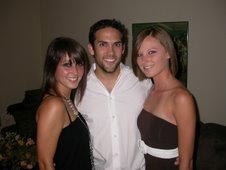


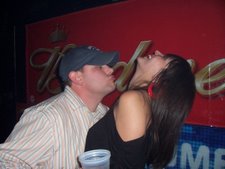
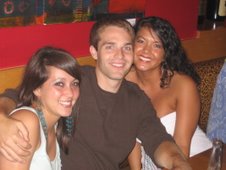
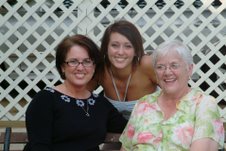


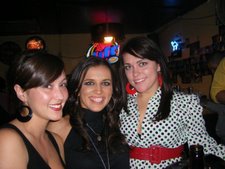


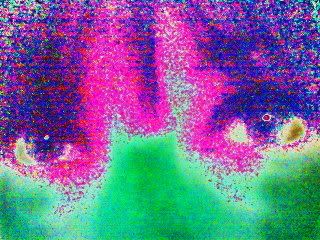

1 comment:
You definitley made a good choice in picking this book. Its awesome. Coelho is now on my favorite authors list...
come check out my blog, I'm publishing a new limerick every
day for the next year and need all the support i can get.
thanks,
J-Man Jeff- http://alimerickaday.blogspot.com
Post a Comment